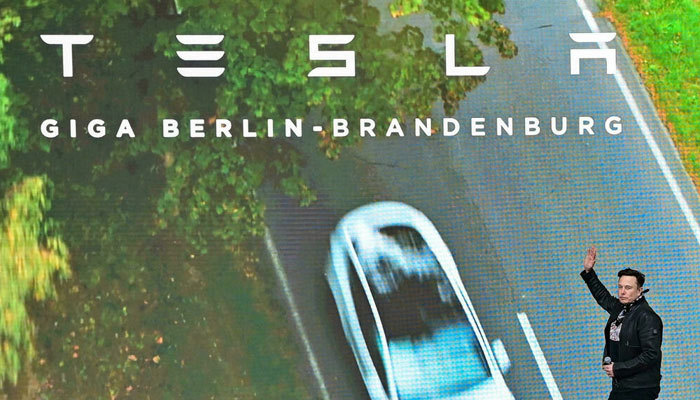
NEW YORK: Tesla Chief Executive Elon Musk often touts the arrival of completely autonomous vehicles as imminent, but exactly how close that future is for the electric automaker remains murky.
Meanwhile, the company is launching new features in a US regulatory environment that has often taken a laissez-faire approach to emerge technologies, while using terms like Full Self Driving (FSD) that critics view as misleading.
Videos posted online by Tesla owners show an erratic performance in “FSD Beta,” the latest update on Tesla´s driver-assistance system.
Cars can be seen turning awkwardly, knocking down safety cones, and lurching unexpectedly.
Earlier this month, Tesla initiated a recall of some 54,000 vehicles equipped with FSD Beta to disable a feature that had allowed the cars to go through a stop sign without fully halting in certain situations.
The episode highlights a downside to Musk´s envelope-pushing approach, which has also been credited with making electric vehicles a mainstream option in the United States and other markets.
“The rolling stop recall was not because of an honest mistake made in engineering, but rather a decision Tesla says was intentional to break traffic laws,” said Phil Koopman, a professor at Carnegie Mellon University and a specialist on autonomous vehicles.
The National Highway Traffic Safety Administration (NHTSA) launched a probe last year following a series of collisions with first-response vehicles involving Teslas equipped with its “Autopilot” driver-assistance system.
“Tesla´s doing a lot of things that tiptoe around violations of the Safety Act and a lot of marketing that inflates the consumer perspective of what their vehicles are capable,” said Michael Brooks, acting executive director of the Center for Auto Safety.






